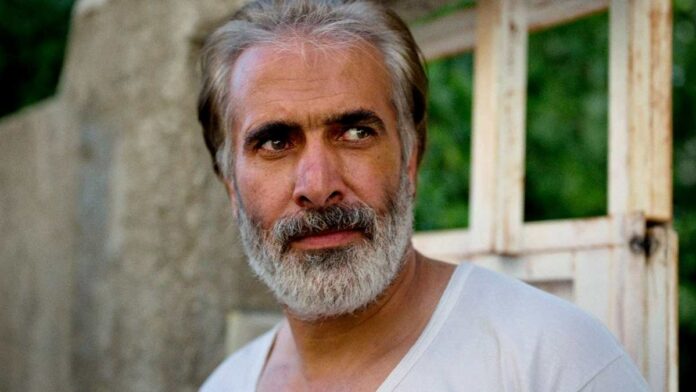In contrast to focusing on a single serial killer, Ali Abbasi’s recently released Persian film “Holy Spider” attempted to portray a society affected by the killers. In the past 20 years, there have been several serial killers in Iran who have killed and sexually assaulted a large number of women. One of them, Saeed Hanaei, known as the “Spider Killer,” was the most notorious and was accused of killing 16 female sex workers. Saeed Hanaei had a history of serial homicide, nevertheless he was respected in his community because, like him, a lot of people believed that murdering prostitutes was an essential step in cleaning up society’s moral impurities.
Saeed Hanaei lived with his wife and three children while working as a construction worker in Mashhad. He was raised in a simple, middle-class family with a history of an abusive mother, which may have had a great impact on developing his misogynistic mentality. Saeed Hanaei, a 39-year-old radical who was born in 1962, thought his murders were divinely sanctioned. He believed prostitution was a social evil, so by killing them, he hoped to live in martyrdom. But all of this was really a misogynistic ploy on his part. Despite the fact that his own ideology was polluted and deserving of hatred, many members of his society backed him and believed that the prostitutes received what they deserved. Saeed Hanaei explained his method of killing, which involved luring the prostitutes home by giving them a ride on his motorcycle while his wife and kids were out. Then he would strangle them to death with their headscarves and wrap the body to dump them on the street. However, in the course of a failed attempt, one of his victims became suspicious and hit him in the stomach before fleeing. When she finally overcame her fear, she filed a police complaint a few days later.
After being detained, Saeed confessed in court to killing 16 prostitutes. He added that his wife was mistaken for one on the street, which is why he made this decision. A group of hardliners had spoken out in favor of the murders after Saeed Hanaei’s arrest, but after it was revealed that Saeed had slept with the victims before killing them, they remained silent. Finally, on April 8, 2002, he was hanged to death in the Mashhad prison. He was a monster hiding behind the façade of a sensible adult who was rabidly misogynist and blinded by his religious principles. Saeed shared this category with individuals who supported him and the attorneys who offered to represent him. In fact, he was considered a folk hero by a select few in Mashhad. Before his execution, various testimonial videos had shown him to be a forthright person who expressed his opinions without giving them much thought. He was not very adept at hiding, and never for a moment did he feel guilty in his heart as he boasted that if he hadn’t been arrested, he would have killed close to 150 sex workers.
Ali Abbasi’s “Holy Spider” not only depicted Saeed Hanaei and the horrific method he used for his kills, but it also addressed a bigger picture of Iranian culture, in which women are the target of oppression. Exposing Saeed Azimi (the name used in the film) through a female journalist was the creative liberty that Abbasi had taken, but Rahimi’s presence was indeed crucial to highlight the fundamental concerns that we frequently ignore. This movie expertly illustrated why patriarchy and misogyny were pervasive in society by showing Rahimi being harassed by a police officer and getting falsely accused of having a relationship with an employee. Even when a hotel receptionist told Rahimi to cover her hair, we were struck by the plight of women in Middle Eastern countries. Rahimi was a representation of justice and a voice against corruption and persecution. In the final scene of “Holy Spider,” we find her watching a video of Ali, Saeed Azimi’s son, describing how his father murdered his victims. His son asserted categorically that if his father was imprisoned or executed, numerous killers would emerge in society to eradicate moral flaws by killing those prostitutes. This film finished in a horrifying tone reflecting Iran’s current situation. In the past 20 years, numerous women have been raped and murdered in Iran. Gholamreza Khoshroo, Mohammed Bijeh, Farid Baghlani, and others have been put in prison for these crimes. Even though they had all been put to death, the crime still persisted.
We may not always experience violent crimes like murder or kidnapping close to us, but we frequently ignore the smaller offenses like harassment, threatening behavior, gender discrimination, and misconduct that ultimately serve as the fuel for the more serious crimes. Saeed Hanaei was unaware of how wrong he had been in destroying numerous families, a father’s sensitive spot, and a child’s need for her mother. “Holy Spider” had addressed it all and received a standing ovation at the Cannes Film Festivals. “Holy Spider” gives us an experience no less than a horror film based on a true story. The portrayal of Saeed Hanaei’s murderous technique is disturbing and nightmare-like. A movie is successful when it portrays the societal conundrum in an engaging way, as “Holy Spider” did with excellent grades.

